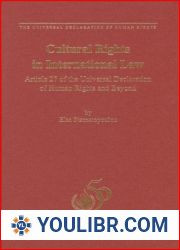
BOOKS - Horizontal Rights: An Institutional Approach


US $9.64

517237

517237
Horizontal Rights: An Institutional Approach
Author: Gautam Bhatia
Year: August 24, 2023
Format: PDF
File size: PDF 3.8 MB
Language: English
Year: August 24, 2023
Format: PDF
File size: PDF 3.8 MB
Language: English
This book provides a new conceptual model for considering constitutional rights from a comparative perspective. A powerful, privately-owned television channel refuses to air an advertisement advocating equal rights for the LGBT community. A prestigious club bars women from standing for executive positions. A homeowner refuses to rent their house to a person on grounds of their race. Each of these real-life cases involves the exercise of private power, which deprives individuals of their rights. Can these individuals invoke the Constitution in response?Horizontal Rights: An Institutional Approach brings a fresh perspective to these age-old, yet fraught issues. This book argues that constitutional scholarship and doctrine, across jurisdictions, has proceeded from an inarticulate premise called 'default verticality.' This is based on a set of underlying philosophical assumptions, which presumes that constitutional rights are presumptively applicable against the State, and need special justification to be applied against private parties.Departing from default verticality and its assumptions, this book argues that constitutional rights should apply horizontally between private parties where the existence of an economic, social, or cultural institution creates a difference in power between the parties, and allows one to violate the rights of the other. The institutional approach aims to be both theoretically convincing, as well as a providing a workable model for constitutional adjudication. It applies both to classic issues such as restrictive covenants, as well as cutting-edge contemporary legal problems around the regulation of platform work and the distribution of property upon divorce. This promises to be an exciting new contribution to the global conversation around constitutional rights and private power.













































